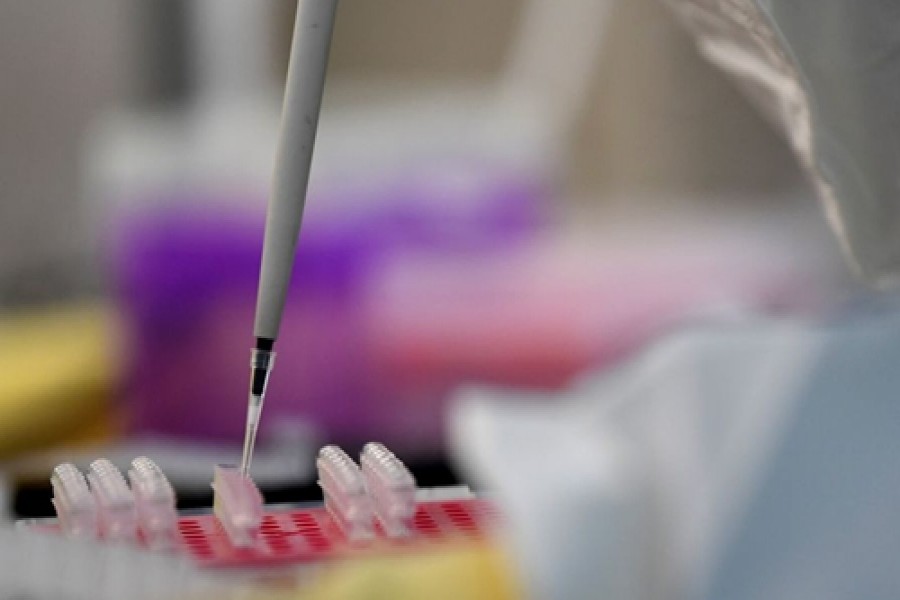An artificial intelligence (AI) model which can predict whether a COVID-19 patient will experience a severe illness has been jointly developed by researchers from China and the US. The research was based on 53 patients from China and its findings were 70 to 80 percent accurate.
"The predictive model learns from historical data to help predict who will develop acute respiratory distress syndrome (ARDS), a severe outcome of COVID-19," read a research article by Jiang Xiangao, Megan Coffee and others published in Computers, Materials & Continua Magazine on Tuesday.
Among all clinical symptoms, "a mildly elevated alanine aminotransferase (ALT) (a liver enzyme), the presence of myalgias (body aches), and elevated hemoglobin (red blood cells), in this order, are the clinical features, on presentation, that are the most predictive," read the article.
Meanwhile, key diagnosis characteristics including fever, lymphopenia and chest imaging were not as predictive of severity, it said.
The coronavirus pandemic has spread rapidly across the world in recent days, with a total of 857,957 confirmed infections and 42,139 deaths as of 8:58 am (US time), per data from the Johns Hopkins University. The US topped the list with 188,547 confirmed cases.
Given the rapid spread and increasing caseloads, there is an urgent need to develop clinical skills to rapidly identify which mild cases could progress to critical illnesses, according to the research.
Based on 53 patients from two hospitals in Wenzhou, East China's Zhejiang Province, the research intended to establish an AI framework with predictive analytics (PA) capabilities applied to real patient data, to provide rapid clinical decision-making support.
AI technology has been widely used during the period of virus prevention and treatment in China, including the use of thermo detectors and disinfection robots.
Though the research did not use a large data base, the article noted that overall accuracy among the included cases was 70 to 80 percent.

- Sunday, 24 November 2024 |
- Today's FE |
- e-Paper |
- Beta Website

